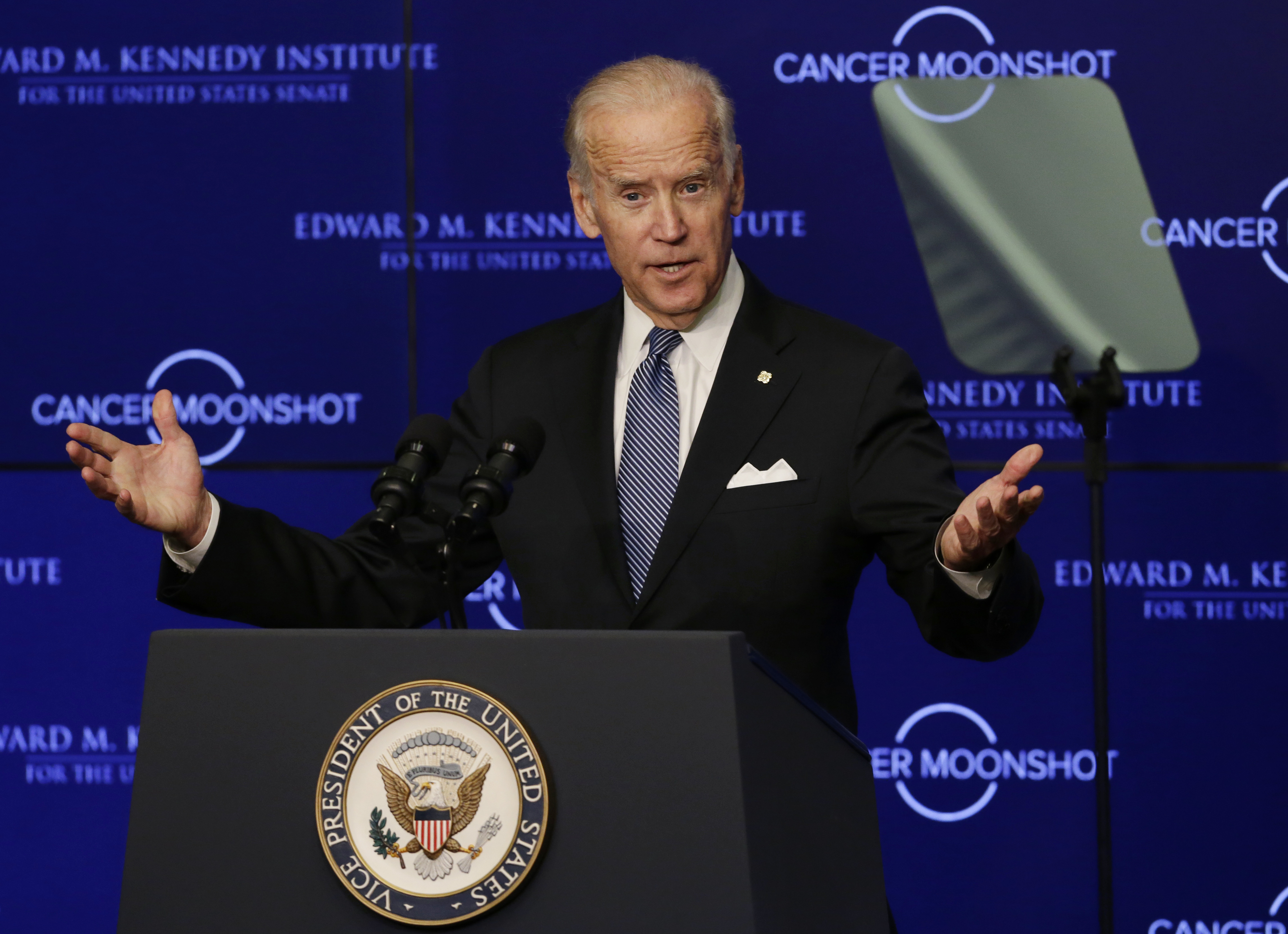
In what evolved into a cancer moonshot think tank, a special event was held at Weill Cornell Medicine on June 29, one of 270 held in tandem across the United States convened by Vice President Joe Biden, with a national summit at Howard University in Washington, DC.
Biden invited regional participants to discuss the goals of the “Cancer Moonshot” mission, announced in January by President Barack Obama as a way to accelerate cancer research, foster data sharing and collaboration, and improve patient access to care — all on a five-year timeline.
Philip Stieg, M.D., Ph.D. and Lewis Cantley , Ph.D. Biden joined the event briefly via a conference call in which he urged participants to “push the boundaries of what is possible” and work collaboratively to make it happen.
Lewis Cantley, Ph.D., director of the Sandra and Edward Meyer Cancer Center, and event host Philip Stieg, Ph.D., M.D., director of the Weill Cornell Brain and Spine Center echoed this sentiment in their remarks.
“At the end of the day someone wants to get the Nobel Prize for curing cancer,” Stieg said. “But that’s counterproductive to what we are talking about.”
Cantley shared examples of cross-disciplinary discoveries made in his own lab, and how the cancer center was working with its partners, such as the Englander Institute for Precision Medicine, on data sharing, institutional tumor banking and computational tools. A video highlighted additional technologies, including the use of the Hololens virtual reality device as a clinical and teaching tool to bring data to life.
Himisha Beltran, M.D., a genitourinary oncologist and clinical director of the Englander Institute, said the challenge is often being able to apply the information gathered from these data points into treatments. Sometimes scientists identify molecular mutations, but there are no known drugs to treat it or, as in Greenfield’s example, the patient cannot access them.
Another gap is in sharing this data, within the hospital network and on a larger scale that would benefit doctors elsewhere, as well as patients who might not have access to large academic medical centers
David Nanus, M.D., chief of the Division of Hematology and Medical Oncology and director of the NewYork-Presbyterian – Weill Cornell Medicine Healthcare Services Cancer Program, agreed.
“We are fortunate here that we have all the resources for our patients, but not all hospitals have that,” Nanus said. “What if you don’t have an expert in house? We need big data that is shared.”
“We need to involve community hospitals,” Roboz added.
Dr. Allyson Ocean said one of her main goals as an oncologist is to empower her patients and give them tools to improve the outcomes of their own disease. She recently teamed up with a patient to create a digital platform where patients can share their treatment information. The site – Let’s Win! – shares scientifically-vetted data about approved therapies, emerging therapies, promising trials and recent discoveries, sometimes before they are published, in case the information can offer clinicians additional options to consider when devising treatment strategies.
“It can empower patients to ask the right questions,” Ocean said.
Audience member Jessica Morris said she appreciated such efforts. Diagnosed six months ago with an aggressive brain cancer, Morris said she immediately turned to Google and was barraged by bad news and scary information. She joined several online support groups, and has done intensive research, rapidly becoming an expert in her cancer.
She encouraged the doctors in the room to join such groups as well, to leverage social media and technology, and to embrace a human, patient-centered approach to cancer care.
Morris said she is eager to contribute to research and wishes she had more opportunity to do so.
“I am trying everything I humanly can to combat my cancer – a ketogenic diet, exercise, meditation… But nobody is monitoring all that I am doing. There’s no way to know whether it is helping,” Morris said. “It would be great to create apps where I could log this data in real time, to capture that knowledge.”
Beltran agreed.
“I think we can learn from every patient is some way,” she said.
# # #
